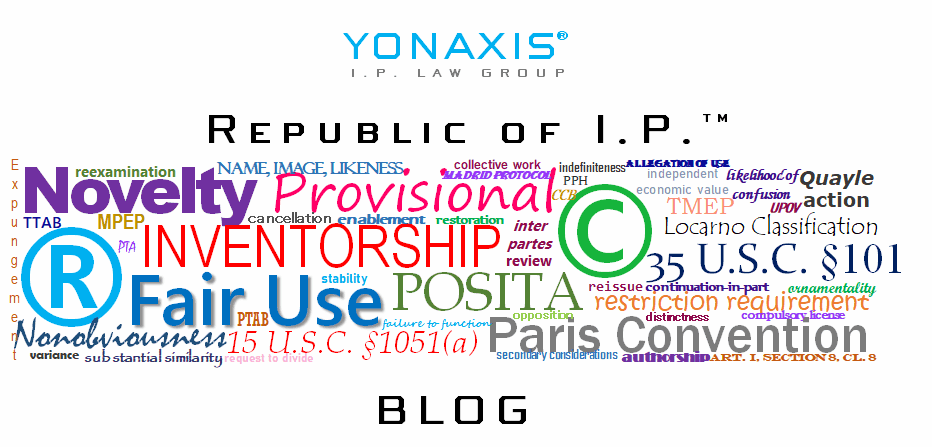The facts are as follows. The plaintiff, Punchbowl, Inc., is an online greeting card company, using and owning the PUNCHBOWL mark since 2006. The defendant AJ Press is the owner of PUNCHBOWL NEWS, an online subscription-based news blog focused on national politics and US government news. The “punchbowl” metaphor refers to an upside down Capitol building; it was meant to emphasize the purpose of Punchbowl News which is to provide commentary and opinion on American politics. The Punchbowl greeting company sued for trademark infringement, and the district court granted summary judgment to AJ Press. Punchbowl appealed.
The opinion was written by Judge Bress, with Judges Owens and Fitzwater comprising the panel. The panel noted that when expression is at-issue, the circuit first employs an initial test to determine if the Lanham Act’s trademark doctrines takes remains secondary to the First Amendment freedom of expression considerations.[2]
if the product involved is an expressive work, we apply a gateway test, grounded in background First Amendment concerns, to determine whether the Lanham Act applies.[3]
Punchbowl, Inc. v. AJ Press, LLC, Case No. 2:21-cv-03010-SVW-MAR, p. 5 (slip op.).
This is done to reconcile the constitutional protections under the First Amendment and the legal constructions of U.S. trademark law under the Lanham Act.[4] The test that is used is based on the Rogers test. Under the Rogers test, the defendant who pleads it as an affirmative defense must first make a threshold legal showing that its allegedly infringing use is part of an expressive work protected by the First Amendment.[5] Once the defendant meets this threshold, the defendant must show that trademark protections under the Lanham Act don’t apply unless the defendant’s use of the mark is 1) not artistically relevant to the work, or 2) explicitly misleads consumers as to the source of the mark.[6]
The panel noted that “a work need not be the expressive equal of Anna Karenina or Citizen Kane to satisfy this requirement, and is not rendered non-expressive simply because it is sold commercially.”[7] To illustrate its point, the panel wrote:
Any attempt to divide up the world between fact and fiction, news and art, fails under the First Amendment concerns that animate Rogers and its progeny. []The Free Speech Clause exists principally to protect discourse on public matters.[8]
Punchbowl, Inc. v. AJ Press, LLC, Case No. 2:21-cv-03010-SVW-MAR, p. 8 (slip op.).
Judge Bress noted that merely because a registered mark (i.e., PUNCHBOWL NEWS) is a news publication or enterprise that it is not afforded expressive qualities or protections. As such, the panel found that PUNCHBOWL NEWS met the Rogers threshold.
As to the substantive Rogers test, the panel inquired whether an online greeting card was so visceral to an online news commentary service so as to confuse a typical consumer. The panel did not think so, initially considering anything sold or bought online would include “all consumers.” Further, the panel was incredulous that a typical consumer would consider the news service of Punchbowl News would be confused that it was the same source as that of the greeting cards of Punchbowl. As such, the panel determined the news site was not explicitly misleading of the greeting card company.
Notwithstanding, Punchbowl introduced evidence of surveys showing consumer confusion, of which the panel disregarded. This was because “to be relevant, the [survey] evidence must relate to the nature of the behavior of the junior user, not the impact of the use.”[9]
This case is an important precursor to the run up to the decision to be rendered by the U.S. Supreme Court in Jack Daniel’s Properties, Inc. v. VIP Products LLC,[10] where the Court will determine the extent of First Amendment doctrine relating to parody to the Lanham Act trademark principles. The decision in the Jack Daniel’s case should be issued by June 2023.
[1] ___F.4th___ (9th Cir. 2022), aff’g 549 F.Supp.3d 1061 (C.D.Cal. 2021).
[2] See Gordon v. Drape Creative, Inc., 909 F.3d 257, 263 (9th Cir. 2018).
[3] See Brown v. Elec. Arts, Inc., 724 F.3d 1235, 1239 (9th Cir. 2013).
[4] See Rogers v. Grimaldi, 875 F.2d 994 (2d Cir. 1989).
[5] See Gordon, at 264.
[6] Mattel, Inc. v. MCA Records, Inc., 296 F.3d 894, 902 (9th Cir. 2002); see also Dr. Seuss Enters., L.P. v. ComicMix LLC, 983 F.3d 443, 462 (9th Cir. 2020) (“neither of these prongs is easy to meet”).
[7] See VIP Prods. LLC v. Jack Daniel’s Props., Inc., 953 F.3d 1170, 1175 (9th Cir. 2020).
[8] Brown v. Ent. Merchs. Ass’n, 564 U.S. 786, 790 (2011).
[9] Id., 724 F.3d at 1246.
[10] 598 U.S.___ (2022).
